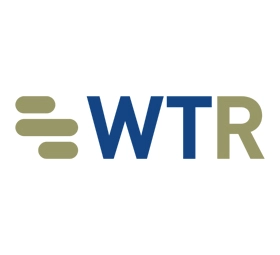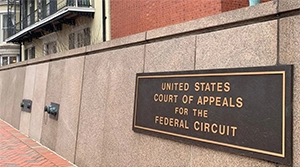
Federal Circuit: it’s not easy being green for colour marks
Ladas and Parry LLP
May 16th 2025
- The TTAB, applying the Milwaukee test, rejected an application for a dark green colour mark for medical gloves on the ground that it was generic
- The Federal Circuit held that the Milwaukee test was the correct legal standard in adapting the Ginn test to determine the genericness of
colour marks - Applying the Milwaukee test, the Federal Circuit confirmed that the mark was generic

In RE: PT Medisafe Technologies, the U.S. Court of Appeals for the Federal Circuit (The “Federal Circuit”) affirmed a decision by the Trademark Trial and Appeal Board (“TTAB”), and adopting a previous test for word marks as applicable to color marks, rejecting the application of a color mark for medical examination gloves by PT Medisafe Technologies (“Applicant”), finding the mark to be generic.
Background
The applicant applied to register a specific dark green color (Pantone 3285c) as applied to chloroprene medical examination gloves. The Examining Attorney initially determined that the color was not inherently distinctive and required a showing of acquired distinctiveness. After reviewing Applicant’s evidence, the Examining Attorney refused the application, determining the mark to be generic. Applicant appealed the decision to the Trademark Trial and Appeal Board (TTAB) which upheld the Examining Attorney’s determination. Applicant then appealed to the Federal Circuit, arguing that the TTAB applied an improper legal standard and that its factual findings were incorrect.
The TTAB applied the following test set forth in the prior Milwaukee Electric Tool Corp. v. Freud America, Inc., 2019 WL 6522400 (T.T.A.B. Dec. 2, 2019) which considers:
- Identifying the genus of goods or services at issue
- Determining whether the color sought to be registered is understood by the relevant public primarily as a category or type of trade dress for that genus
This test is a modified version of the traditional two-part test for genericness set forth in H. Marvin Ginn Corp. v. International Ass’n of Fire Chiefs, Inc., 782 F.2d 987, 990 (Fed. Cir. 1986). for word marks, and was adapted specifically for color marks by the TTAB in Milwaukee.
Decision
Applicant argued that the Milwaukee test was the improper legal standard for color marks because the Lanham Act states that a mark is generic if it “becomes the generic name for the goods and services.” A color cannot be a “generic name” and therefore cannot be refused registration on genericness grounds as the “generic name” requirement applies to all marks, including color marks.
The Federal Circuit rejected the argument that “generic name” does not apply to colors as it was inconsistent with the purpose of the Lanham Act and precedent. They held that the Milwaukee test was the correct legal standard in adapting the Ginn test to determine the genericness of color marks. It then applied the Milwaukee test to the Applicant’s mark.
With regard to the first step, Applicant argued that the relevant genus was improperly defined as “chloroprene medical examination gloves.” Applicant had amended the originally rejected goods of “medical examination gloves” to “chloroprene medical examination gloves sold only to authorized resellers” and argued that the TTAB improperly broadened the genus of goods. The Federal Circuit held that the TTAB had properly identified the genus of goods and was correct in rejecting Applicant’s limitations.
As to the second step, Applicant provided evidence including customer testimonials that they were the source of the applied for color mark. The Federal Court agreed with the TTAB’s finding that the applied for color mark was “so common in the chloroprene medical examination glove industry that it cannot identify a single source.” Thus, the applied for mark was generic.
Comment
The Federal Circuit’s decision established that color marks are subject to the same genericness rejections as other types of marks and that the Milwaukee test is the legal standard for finding genericness in color marks.
Dennis Prahl
Partner, Ladas & Parry LLP
dprahl@ladas.com
View full biography
Ravindra Persaud
Ladas & Parry LLP
rpersaud@ladas.com
View full biography
Copyright © Law Business Research Company Number: 03281866 VAT: GB160752910